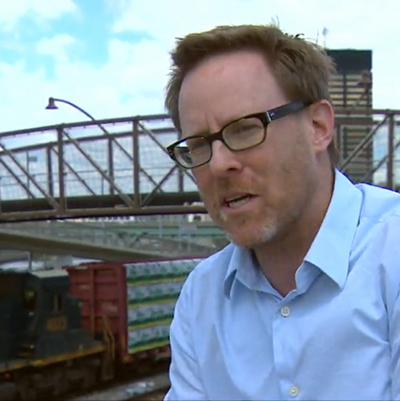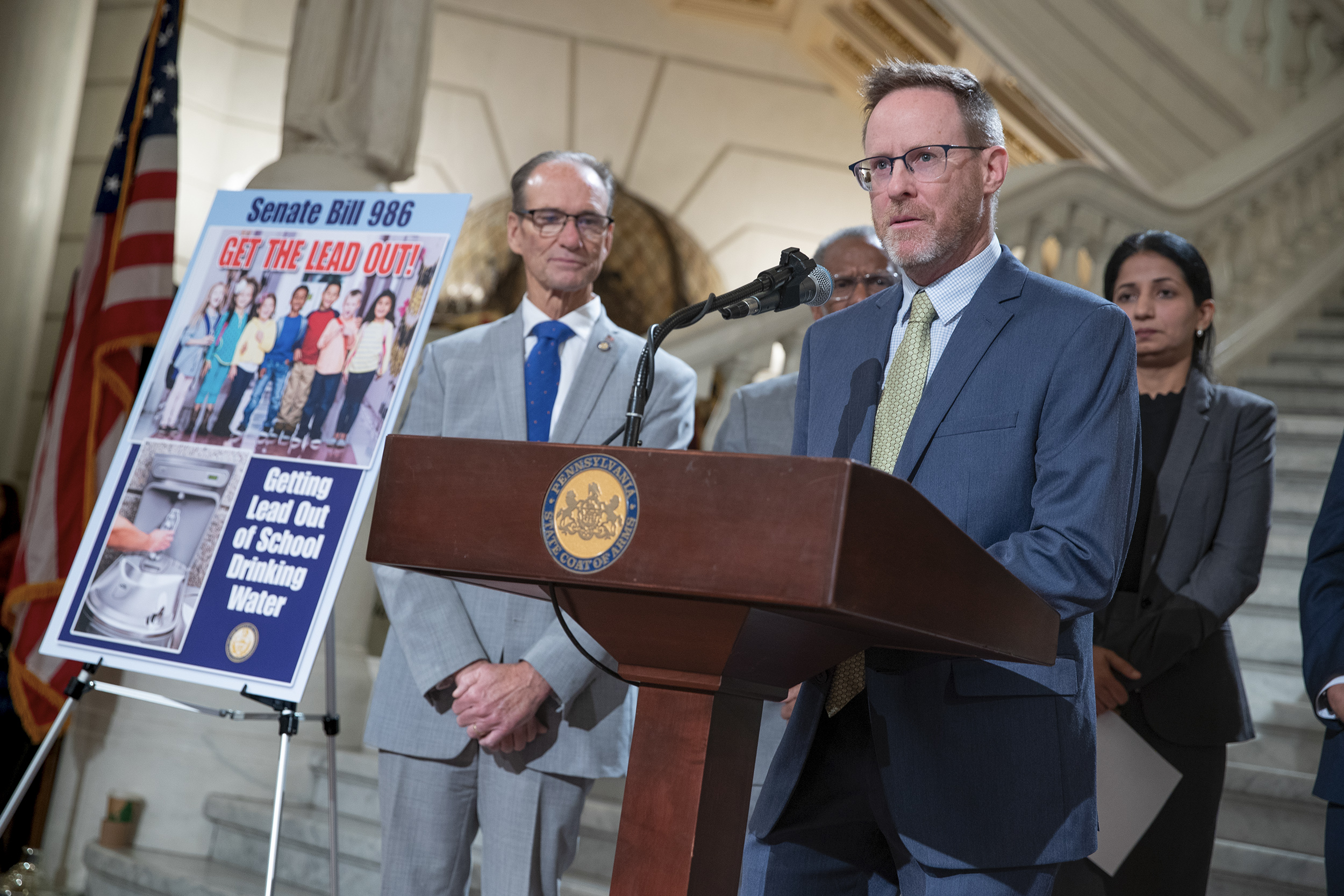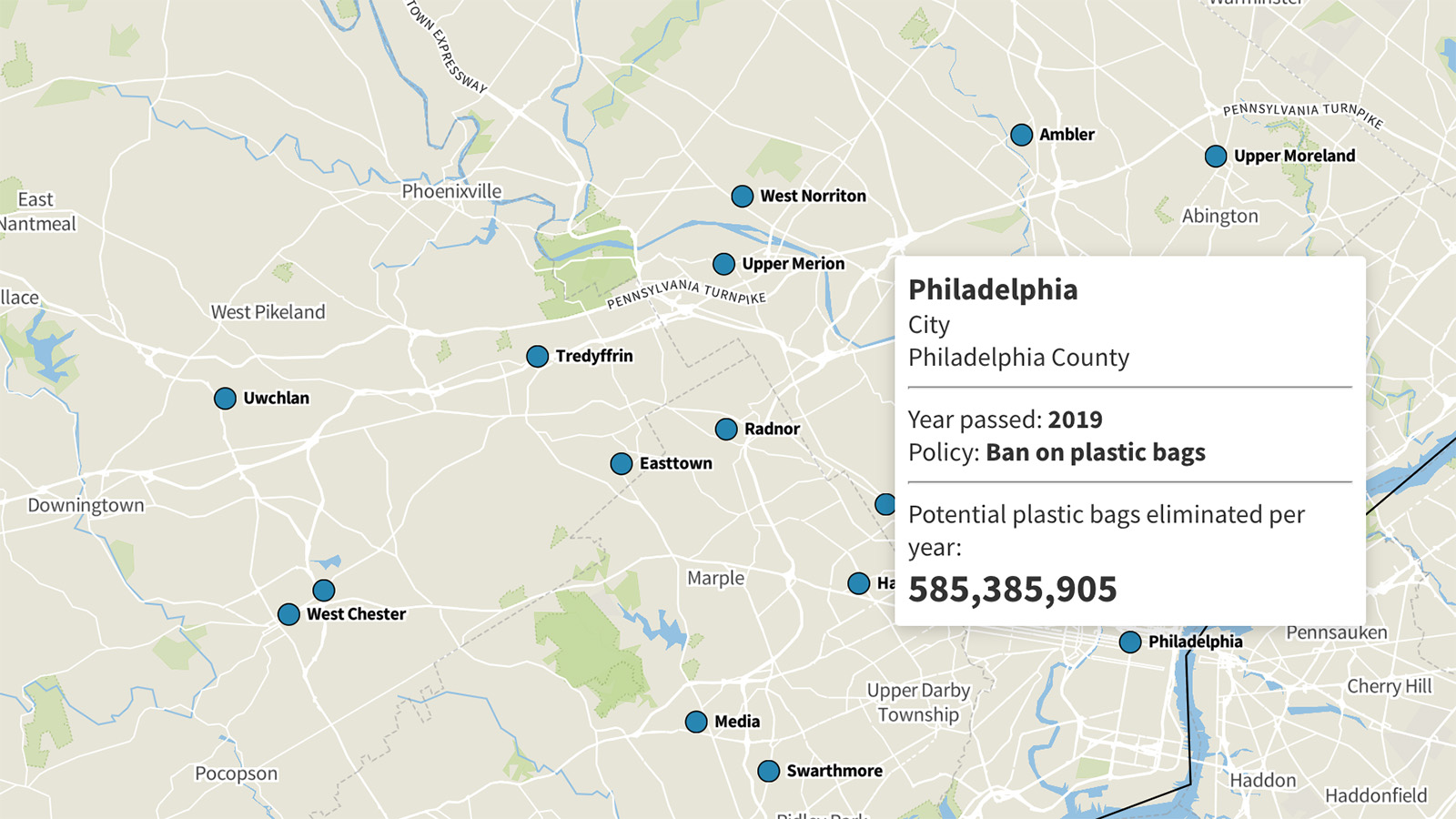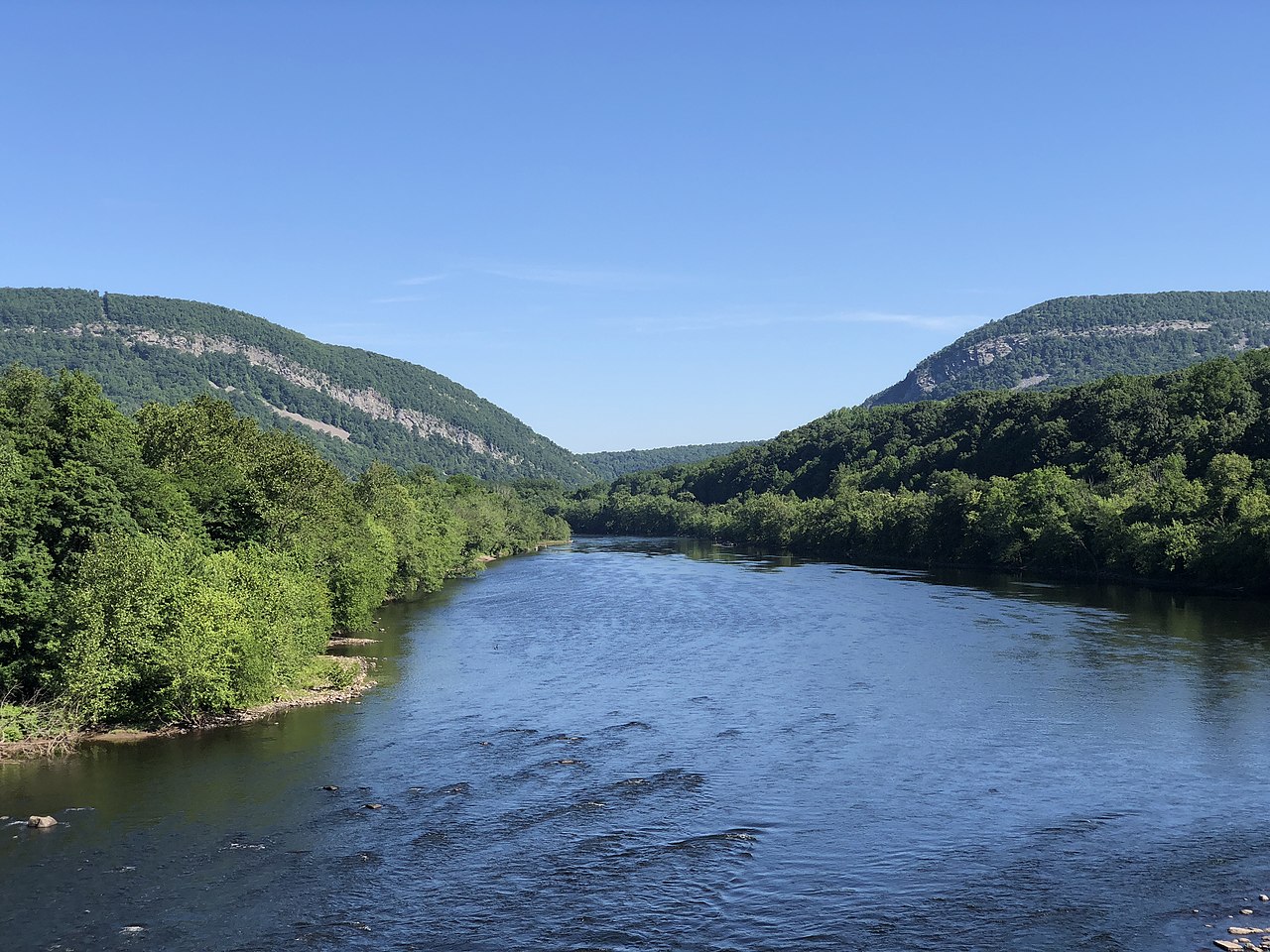
Letter of Support for Senate Bill 986
PennEnvironment Executive Director David Masur
On behalf of PennEnvironment and our citizen members across the Commonwealth, I am writing in support of Senate Bill 986 (Sens Robinson, Kane, Haywood).

Downloads
Dear Members of the Pennsylvania State Senate,
On behalf of PennEnvironment and our citizen members across the Commonwealth, I am writing in support of Senate Bill 986 (Sens Robinson, Kane, Haywood). This legislation would implement a critical statewide policy to comprehensively address the threat posed by lead in school drinking water. By implementing the steps laid out in SB 986, we will protect generations of Pennsylvania children from the negative effects of lead exposure.
Since the Flint, Michigan lead-in-drinking-water crisis in 2014, there’s been ongoing public concern about the threat of lead in drinking water. It’s well-proven that lead exposure causes numerous negative health effects, including damage to the nervous system, learning disabilities, and impaired hearing.
There is consensus in the public health community that lead exposure is unsafe at any level.
Because children spend so much time in school buildings during the prime years of their development, lead contamination in school drinking water is particularly dangerous. For example, recent data shows that more than 60 percent of all water samples taken from Philadelphia school water outlets had elevated levels of lead. Some of the test samples taken came back with lead levels hundreds – if not thousands – of times higher than considered safe.
More and more health experts agree that the most comprehensive way to address the potential threat of lead in school drinking water is to implement a “Filter First” approach. The Filter First approach requires school districts to replace old, antiquated drinking fountains with lead-filtering water bottle filling stations or hydration stations, and to ensure that there is at least one of these lead-filtering hydration stations for every 100 students and staff in each respective school building.
Not only does the Filter First approach help remove lead and other impurities from drinking water, but studies show that the Filter First approach is more cost effective than the “test and tell” policy that has traditionally been implemented by school districts (the “test and tell” approach would require school districts to test all drinking water fixtures annually, and then replace those that test positive for lead).
There is also growing data showing that access to drinking water through water bottle filling stations dramatically increases students’ overall water intake, in turn improving health. Water makes children healthier by helping their muscles, joints, and tissues, improving their digestive system, and keeping their growing bodies hydrated. Healthy, active children learn better, perform better academically, and behave better.
Senate Bill 986 achieves these best practices that the public health community calls for in order to protect our children from the potential threat of lead in school drinking water by requiring the implementation of the Filter First policy throughout all school districts in Pennsylvania, and including revenue sources to assist the Commonwealth’s school districts to fund this critical public health initiative.
Given this, PennEnvironment is proud to offer our support of Senate Bill 986 and calls on the state Senate to pass this initiative before the end of the 2023-2024 legislative session.
Thank you in advance for supporting this important proposal, and helping protect Pennsylvania’s children from the threat of lead contamination.
Sincerely,
David Masur, Executive Director
PennEnvironment
Topics
Authors
David Masur
Executive Director, PennEnvironment
Started on staff: 1994 B.A., University of Wisconsin-Madison As executive director, David spearheads the issue advocacy, civic engagement campaigns, and long-term organizational building for PennEnvironment. He also oversees PennPIRG and other organizations within The Public Interest Network that are engaged in social change across Pennsylvania. David’s areas of expertise include fracking, global warming, environmental enforcement and litigation, and clean energy and land use policy in Pennsylvania. David has served on the environmental transition teams for Gov. Tom Wolf and Philadelphia Mayor Jim Kenney. Under David’s leadership, PennEnvironment has won the two largest citizen suit penalties in Pennsylvania history against illegal polluters under the federal Clean Water Act and the largest citizen suit penalty under the federal Clean Air Act in state history.
Find Out More

Pennsylvania’s local laws reducing plastic waste

More than 50 PA officials call for stronger protections for Delaware River

PA environmental, faith, health, and recreation groups call for stronger Delaware River protections

